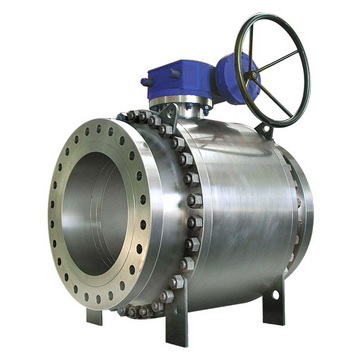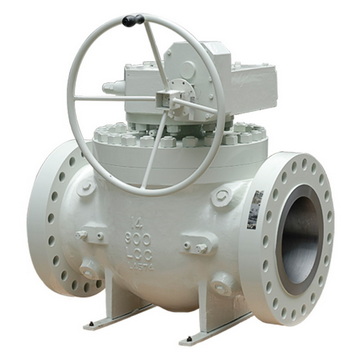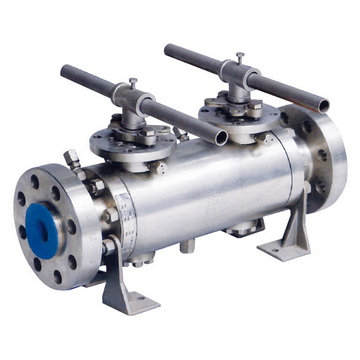API vs ISO Certified Stainless Steel Ball Valves: What You Need to Know
Content Menu
● What Are Stainless Steel Ball Valves?
● API Certification for Stainless Steel Ball Valves
● ISO Certification for Stainless Steel Ball Valves
● Comparing API and ISO Certified Stainless Steel Ball Valves
● Manufacturing Insights for Stainless Steel Ball Valves
● Why You Should Choose API or ISO Certified Stainless Steel Ball Valves?
● FAQ
>> 1. What is the main difference between API and ISO certified stainless steel ball valves?
>> 2. Can stainless steel ball valves be customized for specific OEM requirements?
>> 3. Why is API 6D important for pipeline stainless steel ball valves?
>> 4. Are ISO certified stainless steel ball valves suitable for seawater desalination plants?
>> 5. How frequently should stainless steel ball valves undergo inspection and maintenance?
In the world of industrial piping and fluid control, stainless steel ball valves play a crucial role in ensuring safe, reliable, and efficient operation of many sectors. These valves act as vital components to control the flow of liquids and gases. For manufacturers, distributors, and end-users—especially in demanding industries such as oil and gas upstream-to-downstream processing, seawater desalination, offshore drilling platforms, and many other fields—understanding the distinctions between API and ISO certified stainless steel ball valves is critical. This understanding allows for better selection of valves that meet specific operational requirements and regulatory standards.
This comprehensive article delves into the features, benefits, certifications, and practical applications of API versus ISO certified stainless steel ball valves. It serves as an essential guide for technical professionals and purchasers looking to make informed decisions tailored to their systems, environments, and compliance demands.

What Are Stainless Steel Ball Valves?
Stainless steel ball valves are quarter-turn mechanical devices that regulate fluid flow by rotating a hollow, perforated, and pivoting ball. When the ball's hole is aligned with the pipeline, fluid flows through; when rotated 90 degrees, flow stops completely. This simple yet robust mechanism enables these valves to offer tight sealing, minimal leakage, and low maintenance.
Fabricated from stainless steel alloys such as SS304 or SS316 (commonly designated as CF8 and CF8M castings), these valves are prized for their excellent corrosion resistance, mechanical strength, and ability to withstand harsh operating conditions.
Manufacturers, including specialized factories in China, often produce different types of stainless steel ball valves such as:
- Floating Ball Valves: The ball floats slightly inside the valve body with seats providing the sealing contact.
- Trunnion (Ear) Mounted Ball Valves: The ball is fixed and supported by trunnions, ideal for large sizes and high-pressure ratings.
- Top Entry Ball Valves: Designed for easier maintenance by accessing internals from the top without removing the valve from the pipeline.
These valves are widely utilized in sectors like petroleum extraction, natural gas processing, water treatment (including seawater desalination), chemical manufacturing, and offshore drilling platforms, where reliability and safety are paramount.
API Certification for Stainless Steel Ball Valves
The American Petroleum Institute (API) is a globally recognized authority that develops rigorous standards primarily for the oil and gas sector. The most applicable standard for stainless steel ball valves is API Spec 6D, which governs pipeline valves in petroleum and natural gas industries.
API certification ensures that valves meet stringent requirements for:
- Design: Valves must be engineered to withstand high pressures (often classified by classes such as 150LB to 600LB or higher) and elevated temperatures encountered in oilfield environments.
- Materials: Detailed chemical composition, mechanical properties, and manufacturing protocols ensure durability under corrosive and abrasive media.
- Testing: Comprehensive testing regimes include pressure tests, fire-safe tests (often meeting API 607), and operational cycle testing to validate safety and performance.
- Documentation: Traceability of raw materials, quality control reports, and compliance certificates are essential for meeting safety regulatory demands.
Valves bearing API certification are commonly used in:
- Pipeline flow control systems,
- Oil and gas processing plants,
- Offshore drilling platforms exposed to harsh environmental conditions.
They are designed for exceptional durability and minimal maintenance, supporting critical upstream, midstream, and downstream applications where valve failure can cause significant safety hazards and economic loss.
ISO Certification for Stainless Steel Ball Valves
The International Organization for Standardization (ISO) provides a broad set of standards that apply across various industries worldwide. ISO certifications emphasize quality, environmental standards, and interoperability.
Key ISO standards pertinent to stainless steel ball valves include:
- ISO 17292: Concerns design, dimensions, performance, and testing criteria for metallic ball valves utilized across industrial sectors.
- ISO 5211: Standardizes actuator mounting interfaces to facilitate automation and control system integration.
- ISO 9001: Ensures manufacturing follows a certified quality management system, emphasizing continuous improvement and customer satisfaction.
- ISO 14001: Addresses environmental management systems in production processes, highlighting sustainable manufacturing practices.
ISO-certified valves are recognized for their:
- Versatility: Suitable for a broad spectrum of industries including water treatment, chemical processing, power plants, and general fluid handling.
- Compliance: Meets global requirements facilitating international trade and interoperability.
- Consistent Quality: Emphasizes repeatability in manufacture and interchangeability across different manufacturers and projects.
These valves balance reliable performance with adaptability, ideal for environments where diverse regulatory and operational requirements coexist.

Comparing API and ISO Certified Stainless Steel Ball Valves
The choice between API and ISO certified stainless steel ball valves hinges on operational demands, industry focus, and regulatory requirements.
Design and Application Focus:
API 6D valves are tailored for high-pressure, high-temperature applications predominantly within the oil and gas industry. Their design prioritizes safety in critical flow control points such as pipelines, refineries, and offshore platforms. The API standard features rigorous testing, including fire safety certifications (API 607), ensuring valves can maintain integrity during emergencies.
In contrast, ISO standards cater to a wide industrial array. ISO 17292 defines generic but detailed criteria for ball valve design and performance across multiple sectors. ISO 5211 enhances ease of automation with actuator compatibility, supporting modern control systems. The focus is also on production quality management (ISO 9001) and environmental responsibility (ISO 14001).
Material and Manufacturing Quality:
Both certifications demand high-grade stainless steel materials (CF8/CF8M or equivalent) with attention to corrosion resistance and mechanical strength. API, however, often requires materials to meet more detailed chemical and mechanical properties thresholds to perform under extreme service conditions.
Manufacturing processes under API certification generally require tighter process controls and specific welding, machining, and assembly standards tailored to oilfield safety.
ISO certified valves prioritize robust quality management systems and consistent manufacturing that meets international requirements suitable for diverse industries.
Testing and Validation:
API valves undergo stringent pressure, leakage, endurance, and fire-safe tests specific to pipeline and oilfield safety needs. ISO testing focuses on valve performance over a range of industrial conditions ensuring global usability.
Manufacturing Insights for Stainless Steel Ball Valves
Your Chinese ball valve factory's specialization in designing, developing, and manufacturing high-quality stainless steel ball valves positions it well for meeting API and ISO standards. Advanced CNC machining ensures precision parts fabrication while expert welding guarantees structural integrity, especially for high-pressure classes.
Customization capabilities include:
- Size range and pressure rating adaptations (e.g., 150LB - 600LB and beyond).
- Choice of valves types: floating, trunnion-mounted, and top-entry.
- Materials optimized for corrosive environments like seawater desalination – CF8M stainless steel alloys paired with PTFE or reinforced PTFE seat seals.
- Surface treatments to enhance corrosion resistance in harsh conditions typical of offshore platforms and chemical plants.
OEM services tailored for international brand manufacturers underline capability in meeting sophisticated quality requirements, documentation, and regulatory compliance.
Why You Should Choose API or ISO Certified Stainless Steel Ball Valves?
- API Certified Valves: Are the go-to choice for critical oil and gas applications where failure is not an option. Their robustness against extreme temperatures, pressures, and fire hazards safeguards pipeline systems and ensures operational continuity.
- ISO Certified Valves: Offer industrial flexibility suited for multiple sectors including municipal water services, desalination projects, chemical industries, and industrial manufacturing. Their adherence to global standards facilitates easy integration and international acceptance.
In many cases, combining API design standards with ISO quality management leads to valves that benefit from both rigorous operational specifications and systematic manufacturing quality assurance.
Conclusion
Understanding the nuanced distinctions between API and ISO certified stainless steel ball valves is vital for specifying the right valve to suit your application requirements. API certified valves are engineered for extreme conditions, making them indispensable for oil and gas pipeline safety and offshore operations. ISO certified valves, with their broad industrial applicability and consistent quality assurance, cater to a diverse array of sectors requiring dependable and internationally recognized products.
Your factory's expertise in producing floating, trunnion-mounted, and top-entry stainless steel ball valves compliant with these certifications speaks to your commitment to delivering superior quality products. Whether for petroleum, seawater desalination, or other industrial applications, choosing the right certification standard helps ensure valve longevity, operational safety, and efficient fluid control.

FAQ
1. What is the main difference between API and ISO certified stainless steel ball valves?
API certifications focus on oil and gas industries, emphasizing design robustness, high pressure/temperature capability, and fire safety. ISO certifications apply broadly to many industries, focusing on quality management, environmental standards, and versatile valve performance.
2. Can stainless steel ball valves be customized for specific OEM requirements?
Yes, valves can be customized in size, pressure rating, materials, and connection types to align with exact OEM specifications and application needs.
3. Why is API 6D important for pipeline stainless steel ball valves?
API 6D sets strict requirements ensuring valves withstand pipeline-specific demands, including pressure, temperature, fire safety, and operational reliability crucial for energy sector safety.
4. Are ISO certified stainless steel ball valves suitable for seawater desalination plants?
Yes, ISO certified valves are designed for durability and corrosion resistance, making them ideal for application in seawater desalination and other water treatment industries.
5. How frequently should stainless steel ball valves undergo inspection and maintenance?
Inspection frequency depends on operating conditions, but regular maintenance is necessary to maintain leak-tight sealing and valve performance, especially in challenging industrial environments.
Hot tags: API Certified Stainless Steel Ball Valves, ISO Certified Stainless Steel Ball Valves, API Vs ISO Ball Valve Standards, API 6D Stainless Steel Ball Valves, ISO 9001 Stainless Steel Ball Valves, API Vs ISO Industrial Ball Valves, API Certified Ball Valves For Oil And Gas, ISO Certified Ball Valves For Water Systems, API Vs ISO Ball Valve Quality Comparison, API And ISO Ball Valve Certification Guide